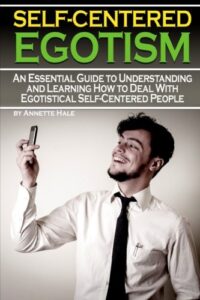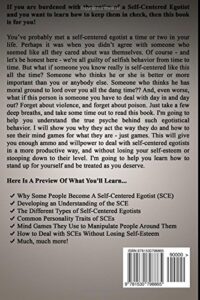Walk into any coffee shop, restaurant, or public space today, and you’ll witness a peculiar ritual: dozens of people carefully angling their phones, perfecting their poses, and broadcasting curated snapshots of their lives to invisible audiences. The “selfie generation” isn’t just a catchy phrase—it’s become the defining characteristic of how we interact with the world and each other.
But this isn’t simply about taking pictures. We’re living through what might be called the “Great Turning Inward,” a cultural shift where self-focus has evolved from occasional vanity into a constant, almost compulsive state of being. The question isn’t whether this trend exists—it’s whether we understand what’s driving it and where it’s taking us.

The Digital Amplifier of Self
Social media platforms didn’t create narcissism, but they’ve certainly perfected its delivery system. Instagram, TikTok, Facebook, and Twitter are fundamentally designed around one premise: making you the star of your own show. Every feature—from Stories to Reels to status updates—invites us to broadcast our thoughts, experiences, and appearances to an audience that may or may not be paying attention.
The numbers tell a striking story. The average person posts about themselves on social media 5-7 times per day. We spend roughly 2.5 hours daily scrolling through feeds that are largely composed of other people talking about themselves. It’s an echo chamber of self-absorption where everyone is simultaneously the broadcaster and the audience.
Consider the language we use online. “My morning routine,” “My thoughts on,” “My journey to,” “Look at my”—the first-person singular has become the dominant pronoun of digital communication. We’ve created a world where the most mundane activities become content worthy of public consumption, where every meal, workout, or random thought is potential material for our personal brand.
Beyond the Screen: Self-Focus in Real Life
The digital world might amplify these tendencies, but they’re increasingly bleeding into face-to-face interactions. Conversations have become waiting periods—spaces where we pause until it’s our turn to talk about ourselves again. The art of listening, of asking follow-up questions that aren’t really just setups for our own stories, seems to be eroding.
Watch people at dinner tables. Even when phones are put away, the conversation patterns remain remarkably self-referential. Someone shares an experience, and instead of exploring it together, the typical response is, “Oh, that reminds me of when I…” The focus boomerangs back to the self almost immediately.
This shift is particularly noticeable in how we approach empathy and support. When someone shares a problem or celebrates a success, our instinct increasingly is to relate it back to our own experience rather than staying present with theirs. “I know exactly how you feel because I…” has replaced “Tell me more about what that was like for you.”
The Psychological Roots
Understanding this trend requires digging into the psychological and social factors that feed it. Modern life has created perfect conditions for heightened self-focus, combining unprecedented individual freedom with unprecedented isolation and uncertainty.
The Paradox of Choice and Identity Previous generations often had their identities largely determined by family, community, religion, or social class. Today’s individuals face the existential burden of creating themselves from scratch. Every decision—from career paths to lifestyle choices to relationship styles—becomes a statement about who we are. This constant identity construction naturally turns our attention inward as we try to figure out and communicate our authentic selves.
The Anxiety of Invisibility In a world of 8 billion people, the fear of being overlooked, of not mattering, has become acute. Social media offers a solution: a platform where we can ensure we’re seen, heard, and acknowledged. Each like, comment, and share provides temporary relief from the anxiety that we might otherwise disappear into the crowd.
The Fragmentation of Community Traditional communities—neighborhoods, religious congregations, extended families—provided natural contexts for thinking beyond ourselves. They gave us roles that were inherently other-focused: caring for elderly relatives, supporting neighbors, participating in collective rituals. As these structures have weakened, we’ve lost built-in opportunities to practice turning our attention outward.
The Hidden Costs of Self-Obsession
While some degree of self-focus is healthy and necessary, the current extreme carries significant personal and social costs that we’re only beginning to understand.
The Loneliness Paradox Despite being more connected than ever, rates of loneliness and social isolation have skyrocketed. When everyone is focused primarily on themselves, genuine connection becomes nearly impossible. Relationships begin to feel transactional—opportunities for mutual self-promotion rather than spaces for vulnerability and mutual support.
The Comparison Trap Constant self-focus inevitably leads to constant comparison. When we’re always thinking about how we measure up, every interaction becomes a potential threat to our self-image. Social media amplifies this by providing endless opportunities to compare our behind-the-scenes reality with everyone else’s highlight reel.
The Empathy Deficit Perhaps most troubling is the impact on our capacity for empathy. Research shows that empathy levels among college students have declined by 40% over the past three decades. When we’re constantly turning conversations back to ourselves, we lose practice in the fundamental skill of understanding others’ experiences on their own terms.
The Meaning Crisis Ironically, excessive self-focus often leads to a profound sense of meaninglessness. Meaning typically comes from connection—to other people, to causes larger than ourselves, to something beyond our immediate experience. When we’re trapped in self-referential loops, we lose access to these sources of meaning.
The Ripple Effects on Society
Individual self-obsession aggregates into broader social problems. Political discourse becomes increasingly polarized because we can’t genuinely consider perspectives that don’t immediately align with our own experience. Community involvement declines as people become less willing to invest time and energy in collective endeavors that don’t directly benefit them.
We see this in everything from declining civic participation to the rise of “main character syndrome”—the belief that we’re the protagonists of everyone else’s story, not just our own. Public spaces become stages for personal performance rather than shared community resources.
Finding the Path Back to Balance
Recognizing the problem is the first step, but what comes next? How do we maintain healthy self-awareness while redeveloping our capacity to genuinely engage with others and the world beyond ourselves?
Practice Generous Listening Make it a conscious practice to ask follow-up questions that aren’t really about you. When someone shares something, resist the urge to immediately relate it to your own experience. Instead, ask questions that help you understand their perspective more deeply.
Cultivate Service Find ways to contribute to something larger than yourself—whether through volunteering, mentoring, or simply taking on more responsibility in your existing relationships and communities. Service naturally shifts our attention outward and reminds us of our interconnectedness.
Embrace Boredom and Solitude Much of our self-obsession stems from discomfort with our own thoughts and feelings. By learning to sit with ourselves without immediately reaching for external validation or distraction, we can develop a more stable sense of self that doesn’t require constant reinforcement.
Question the Performance Before posting, sharing, or speaking, ask yourself: “Am I doing this to genuinely connect and contribute, or am I doing this to be seen?” Both motivations are human and understandable, but being honest about them helps us make more intentional choices.
The Opportunity Hidden in Crisis
Perhaps the most hopeful aspect of our current predicament is that it represents an opportunity for conscious evolution. We’re living through a unique moment in human history where we have unprecedented access to information about psychology, relationships, and personal development. We can choose to use these tools to develop greater self-awareness while simultaneously cultivating our capacity for genuine connection and contribution.
The goal isn’t to eliminate self-focus entirely—healthy self-awareness and self-care are essential. Instead, it’s about developing what we might call “flexible attention”—the ability to turn inward when appropriate and outward when needed, to be genuinely curious about others while still honoring our own experience.
Moving Forward
The age of “me” doesn’t have to be permanent. Cultural shifts that seem overwhelming often change more quickly than we expect, especially when enough people become conscious of the need for change. By recognizing our own patterns of self-focus, practicing genuine curiosity about others, and investing in connections and causes beyond ourselves, we can begin to create the more balanced, connected world we actually want to live in.
The mirror will always be there, but maybe it’s time to look through the window instead—to see not just ourselves reflected back, but the rich, complex world of other people and possibilities that surrounds us. In that broader view, we might discover not a diminished self, but a self that’s more connected, more meaningful, and ultimately more fulfilled.
Hey there! We hope you love our fitness programs and the products we recommend. Just so you know, Symku Blog is reader-supported. When you buy through links on our site, we may earn an affiliate commission at no extra cost to you. It helps us keep the lights on. Thanks.
Disclaimer: The information provided in this discussion is for general informational and educational purposes only. It is not intended as medical or professional advice. Only a qualified health professional can determine what practices are suitable for your individual needs and abilities.


